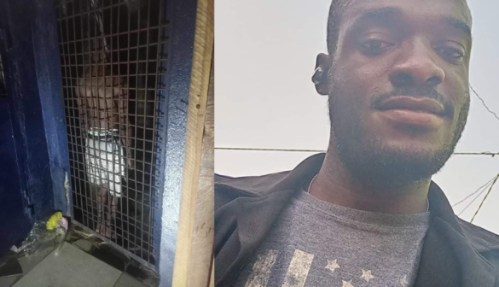The University of Liberia (UL) has launched the Center for Teaching, Learning and Innovation (CTLI) Program, a partnership between the Government of Liberia (GOL) and the government of the United States of America.
The program was held on June 21, 2022 at the A.M Dogliotti College of Medicine Campus, Congo Town, adjacent the St. Joseph Catholic hospital.
The United States of America, in partnership with the Government of Liberia (GOL), launched the program as a means of enhancing engagement in research in Liberia.
The Center for Teaching, Learning and Innovation is a public-private academic hub for research utilization, Innovation, inter-professional training and knowledge generation.
Speaking at the launch, the Charge d’affaires at the US Embassy, Joel F. Maybury, said the USAID-founded partnership for enhancing in research or peer program is a project working to strengthen medical education, both at undergraduate and residency level.
“The launch of the Center for Teaching, Learning, and Innovation is yet another great achievement that marks our long-standing partnership. The CTLI will serve as a gateway to modern health education technology for the next generation of essential health workers—doctors, nurses, administrators and faculty,” Maybury stated.
“Most importantly, the CTLI will be a source of research information for entrepreneurs who are expected to improve their business initiatives using research-based evidence, said the US Ambassador.”
Maybury said the Resilient & Responsive Health Systems Initiative, funded by the United States President’s Emergency Plan for AIDS Relief, or PEPFAR, and administered by the U.S. Health Resources & Services Administration initiative is a support classroom and clinical training for physicians, nurses, midwives, and health managers.
He added that Bringing Research to Impact for Development, Global Engagement, and Utilization (BRIDGE-U), also funded by USAID, is building off these initiatives to enrich faculty development and student-learning across the College of Health Sciences.
Maybury explained that the projects are models of innovation and impact, demonstrating the tremendous change that may be achieved through partnership and collaboration.
“Our U.S. university and other partners are working side by side with the University of Liberia and Tubman University, just as we at the embassy work side by side with the Ministry of Health to reimagine medical education in Liberia,” he underscored.
“The U.S. government is proud of the many ways in which our assistance improves health outcomes for the Liberian people.”
Making remarks, the President of the University of Liberia (UL), Dr. Julius Sawolo Nelson, said he is excited about the opening of the CTLI, which will build a year of progress at the College of Health Sciences and usher in a new era of high quality, professional health education in Liberia.
According to him, about fifty years ago it started with the A.M Dogliotti College of Medicine, but today in spite of challenges the university has a busy campus with four schools: school of medicine, school of pharmacy, school of public health, and the school of nursing and midwifery.
“With the effort and increasing number of students, we are reaching the capacity of our classroom and dorms. Presently, we were forced to relocate the pre-clinical medical students on our painted campus. We are making the extension of additional system that will put in place support with the anticipated growth within the College of Health Sciences,” he disclosed.







